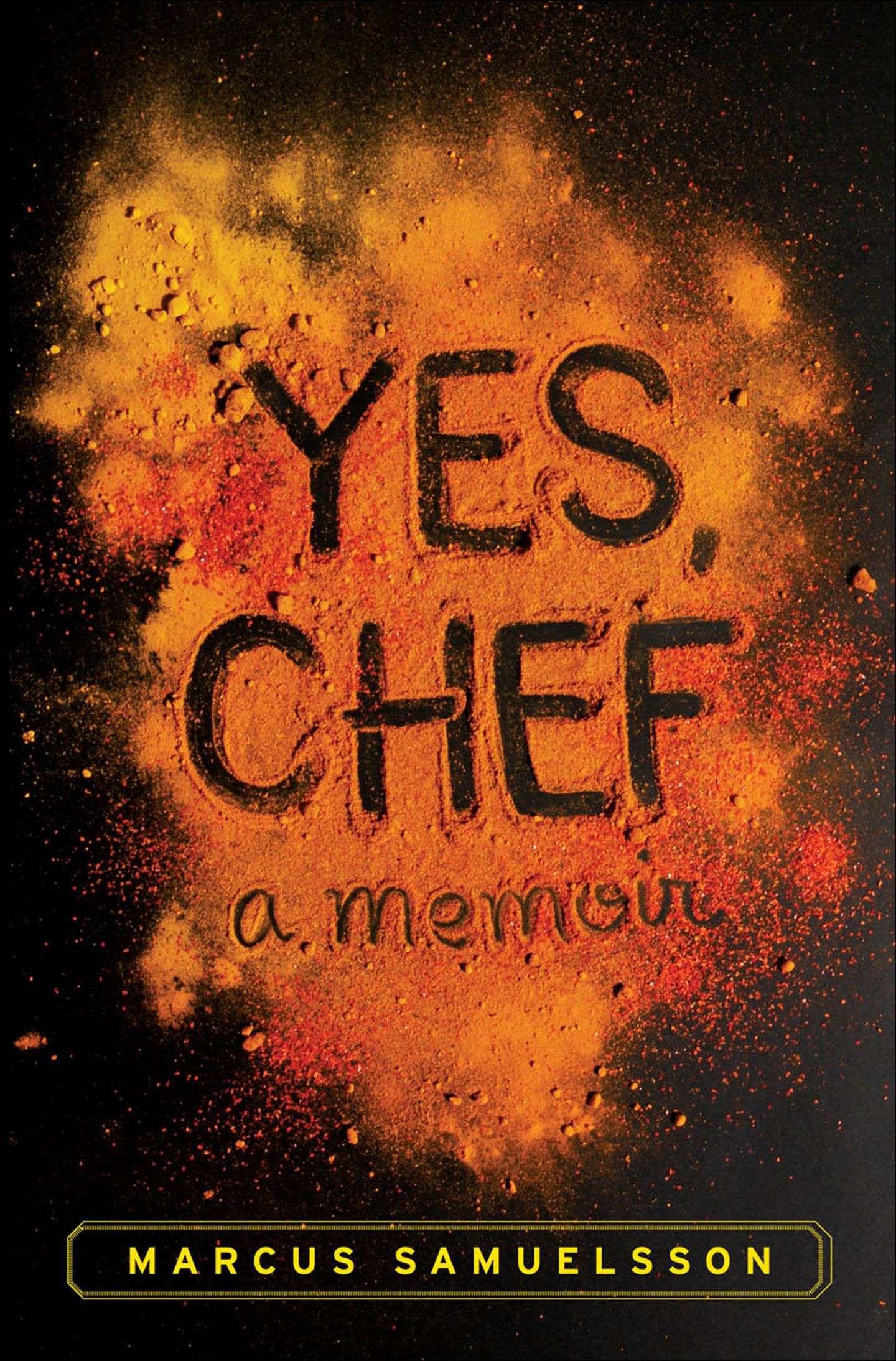Yes, Chef: A Memoir, by Marcus Samuelsson
The problem with many autobiographies of famous people who are still in their prime is that they tend to be highlight reels of obstacles overcome and accomplishments achieved to date. And master chef Marcus Samuelsson’s first few years were indeed tragic: born to a peasant family in Ethiopia, his father was believed to have been killed in tribal warfare that had been sweeping the country. He lost his mother to tuberculosis after she walked over 75 miles to the nearest hospital to get aid for her children, who were also sick. Orphaned at age 3, he and his older sister were adopted a year later by Lennart and Anne Marie Samuelsson, a middle-class white family in Göteborg, Sweden.
Yet even though Samuelsson opens his book with wistfulness for his lost heritage, he does not dwell on it; instead he concentrates on the wholesome and loving upbringing that molded the person he was to become. It was his
grandmother Helga (or Mormor as he affectionately calls her) who fostered in him a love of food and its preparation, with her Swedish breads, her pickles and jams, the gooseberry preserves spooned over ice cream, the seared herring with lingonberries, and her signature roast chicken. But although he enjoyed helping his grandmother in the kitchen, Marcus’ life was also full of other typical “kid” activities: bike riding with friends, fishing with his father and working on a family boat with the other Samuelsson men, playing soccer (he even was on a youth league team that was like a farm club for professional and semi-professional organizations; he was devastated when cut from the roster for being “too small”).
While life was good for young Marcus, it did have its challenges. As a dark-skinned youngster in one of the most flaxen cultures in the world, a feeling of otherness was always present, even if overt racism was not. Still, Marcus had the advantage of a supportive family network, and a personality that was competitive but willing to watch and learn rather than needing to always be at the forefront. The work ethic evidenced by the entire Samuelsson clan was also passed on to the youngster, and although they were practical people, his parents encouraged their son to dream big and to believe in himself. Yes, it was a pretty good life in Göteborg.
But that world was too small for someone whose aspirations grew along with his expanding knowledge, and it’s Samuelsson’s journey from small Swedish town to the top of the culinary universe that is truly captivating. Yes, Chef is definitely not a “tell all” book, nor one that dwells on drama or plays to unbridled ambition, but neither does it shy away from the less than shiny aspects of working behind the scenes in a fine dining establishment. Perhaps most challenging for Samuelsson was the openly prejudiced attitudes evident in the kitchens themselves.
The truth was I chatted with no one, but it particularly sticks with me that I didn’t chat with him [the other black man in the kitchen, a dishwasher]. We were, after all, part of an underclass, objects of a prejudice that showed up in the common vernacular of the kitchen. Just as in Switzerland, the French term for low-level kitchen assistant is negre, which directly translates to “black”. I’d heard people use it countless times, people whose politics are straight up, people who consider themselves worldly and unprejudiced. But there it was, and every time I heard it the word was more than a word, it was another wall I had to climb.
Samuelsson doesn’t spare himself in laying bare some of the less than stellar decisions made and paths followed. He admits that he wasn’t a saint during the years that he was establishing his reputation, and some of his shortcomings deeply affected others in very personal and even negative ways. His candor is necessary but I’m sure it didn’t make his story easy to write, and those parts were not easy to read.
However, the best and most gripping parts Yes, Chef occur when Samuelsson takes us into the mindset of a master chef; all the factors and criteria that flow so easily, and the others that must be carefully uncovered and meticulously mastered. The patience, dedication and focus that goes with being at the top of the culinary field, the toll of the journey, the unexpected challenges that have little to do with putting food on the plate, and the ultimate joy of discovery and triumph is altogether epic in its own realm.
How can I describe the result of this [spice] blend? It was both masculine and feminine, shouting for attention and whispering at me to come closer. In one sniff it was bright and crisp; in the next, earthy and slow. I couldn’t wait to take it back to Aquavit’s kitchen and start experimenting.
If you enjoy any aspect of cooking – whether it be producing scrumptious meals or succulent dishes, or if you simply like watching others do so – then Yes, Chef will prove to be a delicious offering, easily devoured and sure to leave you full and satisfied at the end.
—Sharon Browning

